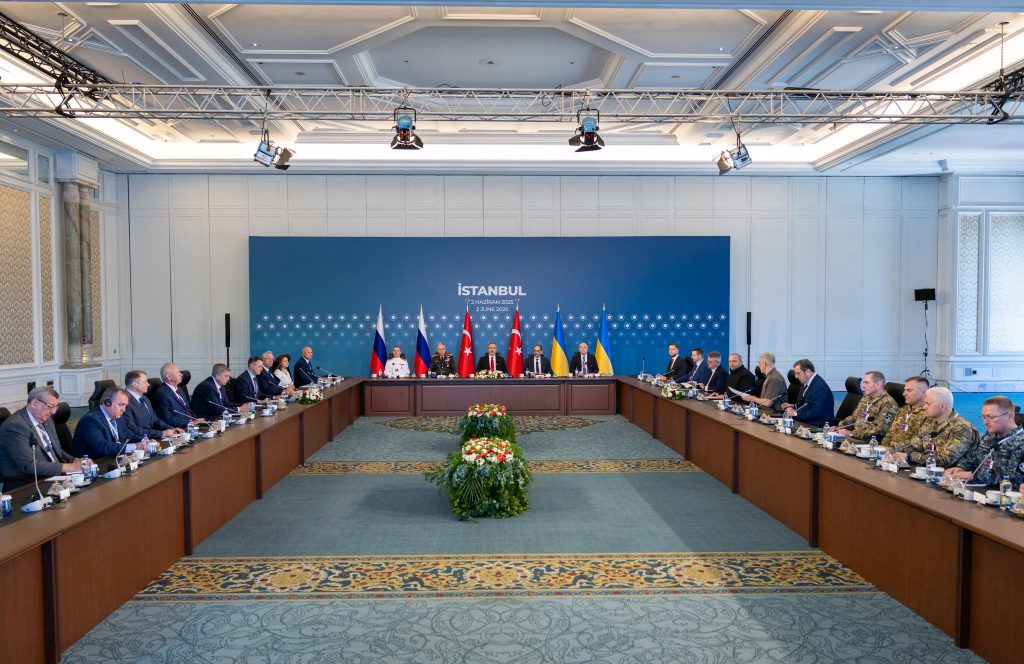Russian and Ukrainian officials held a second round of direct talks in Istanbul on Monday and agreed to move forward on another prisoner swap, but did not appear to make any progress toward a ceasefire or lasting peace deal as the two sides remain very far apart.
Russia and Ukraine agreed to return the bodies of more than 12,000 soldiers, and up to 1,200 POWs from each side could also be exchanged. Each side released 1,000 POWs following the first round of talks in mid-May.
During the talks on Monday, which lasted about an hour, Russia presented its terms for a peace deal, which include Ukrainian troops withdrawing from territory in the four oblasts Moscow annexed in 2022. It also requires Ukrainian neutrality, a commitment that Ukraine will remain a non-nuclear-armed state, and limits on Ukraine’s military capabilities.

Ukraine’s proposal for peace does not include any of Russia’s conditions, as the two sides remain very far apart. According to Reuters, Ukraine’s outline includes no restrictions on Ukraine’s military strength, no recognition of Russian sovereignty over parts of Ukraine taken by Moscow’s forces, and reparations for Ukraine.
Ukraine has also been pushing for an unconditional 30-day ceasefire, which Russia has rejected. Moscow did offer a two-to-three-day truce across certain parts of the frontlines to allow either side to collect dead bodies.
Ukrainian Defense Minister Rustem Umerov, who led the Ukrainian delegation, offered to hold another round of talks between June 20 and June 30. Turkish Foreign Minister Hakan Fidan said the two sides would “begin technical-level work” on their proposals in the coming days.
In the meantime, Ukrainian President Volodymyr Zelensky appears content to keep the war going and wants the West to increase the pressure on Moscow.
“If Russia undermines even this initial agenda, and if the Istanbul meeting brings nothing, that clearly means strong, new sanctions are urgently, urgently needed,” Zelensky said on Monday.
President Trump has threatened to increase sanctions on Russia if a deal isn’t reached soon, and he continues to fuel the proxy war by providing military aid and intelligence support to Ukraine.
The negotiations came a day after Ukraine launched a major drone attack from inside Russian territory that targeted airfields and nuclear-capable strategic bombers, an operation that risks a major escalation from Moscow.


